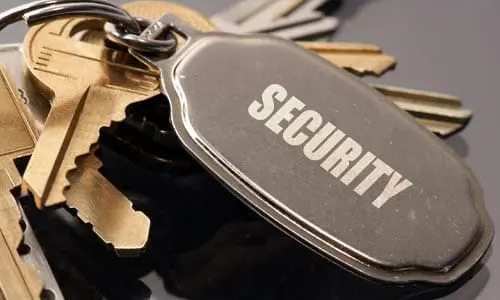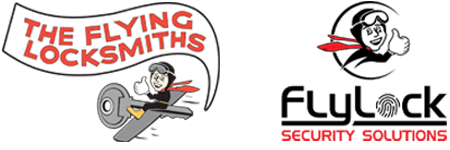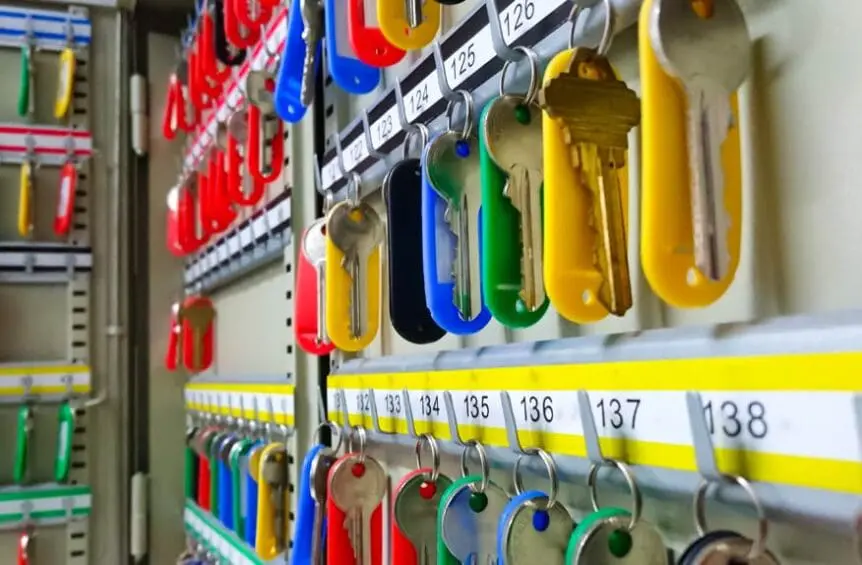
Jake Pflaumer
National Hardware Expert
jakep@flyinglocksmiths.com
In today's business landscape, the importance of robust key management cannot be overstated. Effective key control is vital for ensuring security, managing risks, and safeguarding assets within any commercial facility. This introductory guide lays the foundation for understanding the critical role a well-defined key control policy plays in reinforcing physical security and access control systems. We will delve into the key elements that make a key policy not just compliant, but highly effective in controlling keys, managing key holder responsibilities, and integrating these policies with broader security management systems.
Whether it's about tracking issued keys or maintaining a master key system, the principles of key management are integral to the overall security architecture of a business. By adhering to these practices, organizations can significantly mitigate risks associated with lost keys, unauthorized access, and compromised assets, marking a step forward in comprehensive risk management.
TABLE OF CONTENTS
Key Control Policy Topics This Blog Includes:
Developing a Key Control Policy for Employees: What is a Key Control Policy?
Key control is a critically important aspect of security management within any business, directly impacting both physical and risk management strategies. At its core, key control refers to the policies, systems, and procedures that govern how keys are issued, tracked, and managed. Key control policies go hand in hand with access control systems because they both ensure only authorized employees or personnel have access to facilities or specific areas.
A comprehensive key control policy not only defines who can access and use keys (key holders) via the access control system, but also establishes the guidelines for key request, issuance, and return processes.
Key Control: Key Management & Key Tracking
Developing a key control policy involves more than just setting rules; it's about creating a system that works seamlessly with your existing access control and security measures. This includes integrating key management systems capable of tracking and controlling keys, ensuring that key storage is secure, and each key holder is aware of their responsibilities.
The importance of controlling keys in a business environment cannot be understated. Lost or unmanaged keys pose significant security risks, potentially leading to unauthorized access and compromise of physical assets. Therefore, a key policy must be robust, clear, and enforceable. The policy of key control should outline the procedures for key tracking, the handling of lost keys, and the protocols for key requests and returns. Moreover, the policy should be integrated with the broader control systems of the business, aligning with the physical security measures and access control solutions in place. This alignment ensures a cohesive approach to security, where key control is a fundamental component of the overall system.
Employee Key Holder Training
Training employees on the key control policy is an important and necessary step in enforcing policies of key control. They need to understand the importance of key management, the potential costs associated with lost or mismanaged keys, and their role in maintaining the integrity of the master key system. This education is not just about compliance but about embedding a culture of security awareness throughout the organization.
Developing an effective key control policy for employees is about more than just managing keys; it's about creating a controlled environment where security is paramount, and every key holder plays a vital role in safeguarding the business's assets and facilities.
Authorization Process & Procedures for Keys
In any business, controlling who has access to keys is a cornerstone of maintaining security. The cornerstone of this control lies in a robust authorization process. Within a business that utilizes an effective key control policy, not everyone has the same level of access or authority to request or manage keys. Typically, this authority is reserved for certain roles, including:
- Senior Management
- Heads of Departments
- Key Administrative Personnel
- Specially Designated Staff
These select individuals hold the responsibility to request new keys or rekeying of locks, ensuring such requests are tightly regulated. In cases where a master key is involved, there’s an added layer of accountability. The recipient must formally acknowledge their duty of care for this key, agreeing to return it under specific circumstances like job transition, resignation, or leaving the organization.
For an added layer of security, the process of delegating authority to request keys should be formalized. It involves written authorization, ideally on company letterhead, signed by the senior-most department official. This procedure is vital to prevent unauthorized duplication and access. As a rule, non-authorized personnel should not have access to keys, unless in extraordinary situations which require approval from top-level executives.
Moreover, the aspect of managing keys extends to accommodating the schedules of those who possess them. Recognizing that key holders may need to adapt their work hours to their responsibilities, requests for schedule adjustments are considered. However, such adjustments follow a stringent approval process to ensure they align with organizational standards and do not compromise security.
By setting clear, enforced boundaries and procedures for key access and use, businesses can significantly enhance their overall security posture.
Master Key System for Robust Key Control
Learn More About Master Key Systems

Tiered Access Architecture
The crux of a master key system lies in its ability to provide tiered access. It allows for different levels of control and access, depending on the role and requirement of the key holder. For instance, while a department head might have a master key that accesses all doors within their department, individual employees might only have keys to specific areas. This tiered approach not only enhances security but also helps in minimizing risks associated with lost or unauthorized keys.
Implementing a master key system requires meticulous planning and a thorough understanding of the organization's security strategy and access needs. As noted previously, the key control policy should clearly outline the issuance procedures of these master keys, detailing who is authorized to hold them, under what circumstances they can be issued, and the protocol for reporting lost keys.
An essential aspect of managing a master key system is keeping detailed records. Every key issued should be meticulously tracked, noting which locks each key opens and to whom each key is assigned. This level of detail is crucial, especially in scenarios where a key is lost. Swift action can then be taken to resecure affected areas, mitigating potential security breaches.
The hardware involved in a master key system should be high-quality to resist tampering and unauthorized key duplication. The Flying Locksmiths hardware experts can assist in specifying grade one locks and access control system hardware that integrates effectively with your facility. Regular audits by a locksmith or security professional such as The Flying Locksmiths are recommended to ensure the integrity of the key system. Additionally, secure storage for master keys is a must, as these keys provide broad access and, if misplaced, can lead to significant security vulnerabilities.
The master key system balances ease of access with security, allows for efficient control of multiple locks, and reduces the operational costs associated with key and lock management. However, it demands rigorous policy enforcement, careful planning, and regular oversight to maintain its integrity and effectiveness in enhancing overall security.
Key Storage Policy for Keys
Secure and Organized Storage Solutions
Systematic Labeling and Accountability
Issuance and Tracking Protocols
Regular Audits for Compliance and Security
Protocol for Lost or Misplaced Keys
A key aspect of the policy is the procedure for addressing lost or misplaced keys. In such events, immediate steps should be taken to re-secure the affected areas. This may involve rekeying locks or updating access systems, underscoring the importance of swift and decisive action to maintain security integrity.
In summary, a well-structured key storage policy plays a pivotal role in the larger key management framework. By ensuring secure, organized, and accountable storage of keys, an organization can significantly enhance its control over access and minimize risks associated with key mismanagement.
Take the Next Step in Securing Your Business with The Flying Locksmiths
As you've seen throughout this guide, effective key control and management are essential for securing your business and safeguarding your assets. But understanding the best practices and implementing them can be challenging. This is where The Flying Locksmiths come in.
With our expertise in advanced key systems, comprehensive security solutions, and commitment to your business's safety, we can help you navigate the complexities of key control policies and access systems. Whether it's designing a master key system tailored to your needs, conducting security audits, or providing top-notch key management solutions, our team is equipped to ensure your business's security is in the best hands.
Don't let the security of your business be an afterthought. Take proactive steps today to enhance your key control and door access management. Contact The Flying Locksmiths to discuss commercial security solutions to secure your business, implement effective key management systems, and provide ongoing support and expertise with access control systems.


